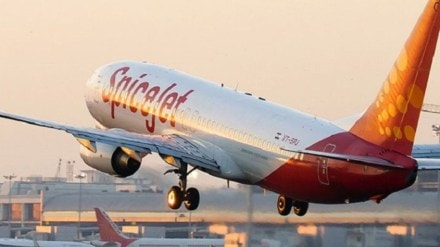SpiceJet’s recent Rs 3,000 crore Qualified Institutional Placement (QIP) marks a pivotal moment for India’s aviation sector, helping maintain healthy competition amid the collapse of Jet Airways and the grounding of GoFirst. Concerns over a potential duopoly of Indigo and Air India, dominating the market had sparked fears of rising airfares and reduced passenger options, but SpiceJet’s successful capital raise offers much-needed relief to consumers. At present, India has four airlines that operate across the country: Indigo, Tata Group’s Air India (including Vistara and Air Asia), Spice Jet and newcomer Akasa Air, while there are a few regional airlines as well.
SpiceJet’s oversubscribed QIP, supported by prominent investors like Goldman Sachs, Morgan Stanley Asia, BNP Paribas Financial Markets, and Nomura Singapore Limited, underscores market confidence in the airline’s ability to preserve competition. As India’s aviation industry faces consolidation, this infusion of fresh capital into SpiceJet ensures that consumer choice remains intact and airfares stay competitive.
“SpiceJet’s QIP success is not just important for the airline but for the entire aviation sector,” noted a senior industry analyst. “It reassures passengers that competition will persist, which is critical to controlling airfares and ensuring access to affordable travel.”
The funds will be directed toward key operational needs, such as fleet expansion and improving financial stability. SpiceJet aims to bring grounded planes back into service and strengthen operational reliability, important steps in restoring consumer confidence. Despite this progress, the airline still faces significant challenges in stabilizing operations and achieving long-term profitability.
Experts stress that SpiceJet’s continued presence is vital for maintaining competitive air travel in India. “The fear of a duopoly was real,” said an aviation expert. “SpiceJet’s survival ensures that air travel remains accessible to everyday passengers.”
Beyond competition, SpiceJet has also played a role in national emergencies, including transporting essential supplies during the COVID-19 pandemic. The airline’s resilience not only benefits passengers but also bolsters the overall stability of India’s aviation sector. While challenges remain, SpiceJet’s ability to raise capital and navigate financial difficulties offers hope in a turbulent market, safeguarding consumer interests and preserving competition in the aviation landscape.
In contrast, InterGlobe Aviation (IndiGo) announced a similar Rs 3,000 crore QIP in May 2021, as the second coronavirus wave battered the aviation industry. The pandemic’s impact continues to be felt, with several airlines—including NEPC, Kingfisher, Modiluft, Jet Airways, and most recently Go First—having ceased operations in the last three decades. Though Akasa Air is holding on, it faces challenges, including losing market share to giants like IndiGo and Tata Group-run airlines (Air India, Vistara and AirAsia). Additionally, the Indian aviation industry suffers from a pilot shortage, as seen in the recent crisis at Akasa Air, which is now planning to bolster its fleet and expand international operations.
Amid these challenges, Tata Sons’ 100% acquisition of Air India highlights efforts to stabilise the sector. Air India’s restructuring in 2010, which included a 50% cut in performance-linked incentives (PLI), aimed to save Rs 700 crore annually. However, these measures only partly addressed the airline’s deeper financial struggles, with losses exceeding Rs 5,000 crore in 2008-09.
SpiceJet’s success in securing new funding offers a glimpse of hope for the broader aviation industry, which continues to struggle with financial pressures and operational hurdles.
